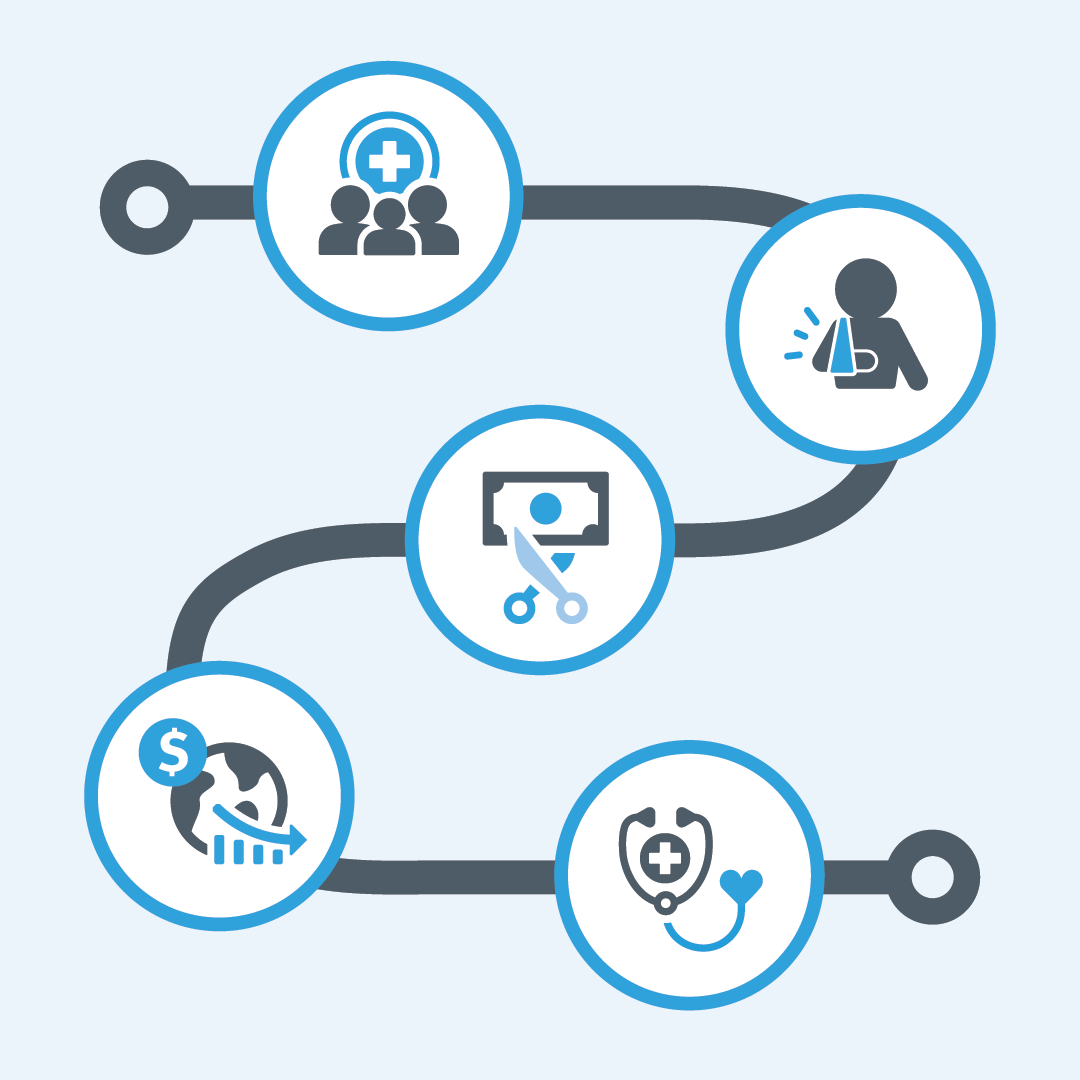
10 Health Advocacy Highlights from the 2016 Legislative Sessions
By
07.05.2016
Despite a divided Congress in Washington, many state policymakers around the country, supported by advocates, reached across the aisle to make needed improvements to the health care system.
Governors, lawmakers, and regulators made strides to expand health coverage, protect consumers in the insurance market, and address rising prescription drug prices. Here are some of the highlights of the 2016 sessions through June 1 and the Families USA allies whose advocacy was critical to making them happen.
- Medicaid expansion—On January 12, the day after he took office, Gov. John Bel Edwards made the Bayou State the first in the Deep South to expand Medicaid. Enrollment began on June 1, and the program began July 1. Louisiana became the first state in the nation to use a state plan amendment to allow data from the Supplemental Nutrition Assistance Program (SNAP, formerly known as food stamps) to help enroll people in the new Medicaid coverage. New Orleans’ 504HealthNet touted the Medicaid expansion kick off.
- Coverage for the undocumented—California Gov. Jerry Brown signed SB 10, authorizing the state to seek a 1332 waiver so that undocumented immigrants can seek coverage on the state’s health insurance marketplace. The federal government still has to approve the waiver. Under the ACA, the undocumented are not allowed to purchase health insurance. The new legislation will allow all Californians, regardless of immigration status, to purchase unsubsidized coverage through Covered California. Health Access California and the California Immigrant Policy Center were key players in helping generate support for the bill.
- Financial assistance for immigrants—Oregon created a program under HB 4071to provide financial assistance to help Pacific Islanders legally living in Oregon under the Compact of Free Association (an agreement between the United States and the Republic of the Marshall Islands, the Republic of Palau, and the Federated States of Micronesia) pay their health care premiums and out-of-pocket costs. The Department of Consumer and Business Services would administer the premium assistance program, which will provide $1.8 million to assist between 1,000 and 1,500 of the Pacific Islanders living in Oregon. The Asian Pacific American Network of Oregon worked hard to make the legislation a reality.
- Medicaid and CHIP coverage for immigrant children—Florida and Utah legislators removed the five-year waiting period on getting health coverage for legally present immigrant children through Medicaid and the Children’s Health Insurance Program (CHIP). The 2009 CHIP Reauthorization Act allowed states to waive the waiting period for legal immigrants and receive federal matching funds for coverage. With the addition of Florida and Utah, 30 states and the District of Columbia now provide such coverage to immigrant children. Florida CHAIN and Voices for Utah Children lobbied for the expanded coverage.
- Accurate provider directories—Georgia lawmakers enacted new standards for health insurance provider directories to ensure that consumers get accurate information about the providers and facilities that their health insurance will cover. Families USA expert Claire McAndrew helped Georgians for a Healthy Future in drafting the legislation and getting it across the finish line.
- Network adequacy standards—Maryland took on consumer protections for health insurance provider networks during this session. Building on the National Association of Insurance Commissioners’ Network Adequacy Model Act, lawmakers required the insurance commissioner to set specific standards to ensure that each health plan has sufficient providers to deliver timely and appropriate care to enrollees. The law also puts in place provisions that will support greater accuracy in the information that provider directories display. Consumer Health First and the Mental Health Association of Maryland worked with Families USA expert Claire McAndrew on the legislation.
- Surprise medical bills—Florida’s Gov. Rick Scott signed bipartisan legislation to protect consumers from surprise medical bills. The measure would limit the costs when patients use an in-network facility but end up receiving care from out-of-network providers for reasons out of their control. The new law would mean patients would only need to pay their usual in-network cost-sharing in such cases. Florida CHAIN’s policy and advocacy leadership was essential to the bill’s passage this session.
- Medicaid suspension—Washington lawmakers voted to suspend Medicaid when a person is incarcerated rather than terminate coverage. The measure, which was supported by the Northwest Health Law Advocates, allows individuals to more easily reactivate coverage upon release in order to obtain needed services. The new law will take effect July 1, 2017, when Washington will join 16 other states and the District of Columbia with similar laws.
- Drug pricing transparency—Vermont lawmakers became the first in the nation to pass legislation requiring drug manufacturers to detail the pricing information for up to 15 prescription drugs on which the state spends “significant health care dollars and for which the wholesale acquisition cost has increased by 50 percent or more over the past five years or by 15 percent or more over the past 12 months.”
- Oral health care—State leaders put oral health care on the agenda in several states including Missouri, where Gov. Jay Nixon added dental care to health benefits under Medicaid for the first time since 2005. Vermont passed legislation to allow dental therapists to provide care. The new law grants dental therapists a scope of practice greater than hygienist but more limited than a dentist. The Vermont Public Interest Research Group led the fight for five years to advance the dental therapists legislation.
This list provides just a snapshot of the diverse accomplishments that state policymakers and advocates achieved on behalf of health care consumers in 2016. We anticipate that this momentum will continue into 2017 and beyond. We look forward to reporting on more important milestones in the states that bring extended coverage to more people and make our health care system more transparent, accessible, and affordable for all.




